
Mali is a landlocked country in West Africa and one of the five least developed countries in the world. More than 90 percent of Mali’s population lives in the more fertile southern region of the country. Nearly 75 percent of the population depends on agriculture, but the lack of rain often limits their crops. The country also has a drought every 10 to 15 years.
According to the World Bank, poverty in Mali is pervasive. Food sufficiency is dependent on the harshness and unpredictability of the climate, which is compounded by seasonal variations in the weather which tend to be particularly acute during the pre-harvest period. While Mali experienced an overall drop in national poverty from 55.6 percent in 2001 to 43.6 percent in 2010, regional differences persist and in 2013, the poverty rate rebounded to 45 percent. Mali ranks 182 out of 189 countries on the United Nations Human Development Index for 2018.
Salesian missionaries have recently built the St. John Bosco secondary school in Touba, a small town which had no other secondary educational institutions. The school was completed with the assistance of the Spanish Salesian organization, Solidaridad Don Bosco, which aims to give youth at risk of social exclusion access to quality education.
Salesian missionaries began construction of the St. John Bosco secondary school because the area offered no educational institutes for older students. The new high school now serves more than 400 youth from 17 villages in the region. Together with the construction of the new school, a gender awareness development plan is in place to facilitate girls’ access to education and to foster and welcome their participation in the activities of the local oratory.
In addition, the Spanish Salesian Solidaridad Don Bosco developed a project to expand the Salesian educational center in Sikasso. The project will span 12 months, relies on the support of the Spanish municipalities of Utrera and Pozoblanco, and will benefit youth in situations of exclusion served by the center.
The Salesian center in Sikasso currently has a student body of 430 students learning in 11 classrooms. The space is clearly insufficient with respect to the needs of the center. In order to improve the service offered by the center and the quality of education, the new project helped to build a new building that accommodates eight additional classrooms which are fully equipped. The project is also assisting with the recruitment of the necessary teachers.
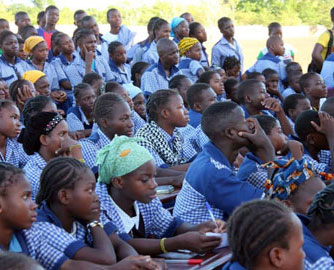
The Salesian parish in Touba includes residents from 76 local villages. Recently, Salesian missionaries opened 15 classrooms to guarantee literacy education for the local community and started technical and vocational training projects. They also created a small sports center and constructed a boarding school that accommodates 60 students aged 12 to 17 who come from distant rural villages.
Salesian missionaries in Touba have developed a new project for the production and sale of soap.
With this initiative, Salesian missionaries and the Daughters of Mary Help of Christians who work with the most vulnerable populations are offering the opportunity to support local development in an inclusive way and to strengthen the role of women in rural areas. So far, the project has impacted more than 50 girls and young women from the village of Touba. They are being trained in the production of soap and have been able to start a small emporium where they can market and sell what they produce.
The education of girls and young women helps them to improve their economic resources and those of their families. By earning an income, they are able to improve the health, nutrition and education of their families. In the same space where the soap production and lessons are being held, there is a recreational space. Here, girls and young women meet and share their experiences.
In May 2016, construction was completed on Foyer Don Bosco in Touba. The facility is part of a project named “Guaranteeing access to a quality education for the displaced youth of the rural areas of Touba, Mali,” which has been made possible through funding by the Extremadura International Cooperation Agency for Development (AEXCID) and the Municipality of Utrera.
Foyer Don Bosco is part of the larger St. John Bosco School Complex, an educational center that hosts 60 boarding students who come from rural areas and poor families. Thanks to this new educational facility, youth will now have more opportunities to gain an education and continue their studies. Funding from the project has also provided a new classroom and sports equipment for the center so youth have a chance to participate fully in their school activities.
This project also aims to improve the quality of the educational services provided by investing in teacher education, the purchase of books for the library, the creation of a study hall that will remain open all day, and on the strengthening of the management and planning capability of the center. The goal is provide poor youth in Mali the educational opportunities needed to gain the foundational schooling and then later the vocational and technical skills needed to find and retain employment.
From Mali

From Mali
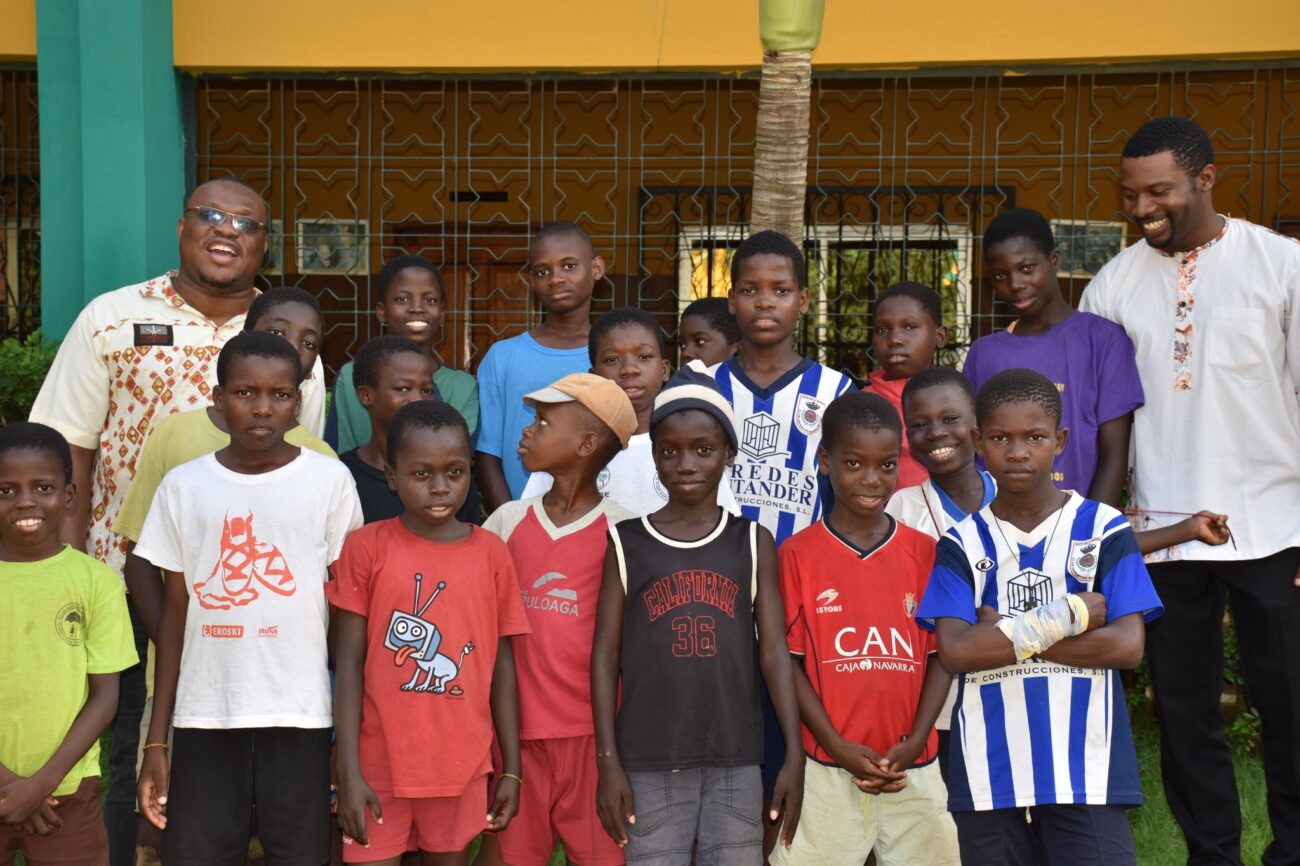
Salesian missionaries work in more than 130 countries around the globe. NEW ROCHELLE, NY (Aug. 12, 2025) Salesian Missions, the U.S. development arm of the Salesians of Don Bosco, joins humanitarian organizations and countries aro

The outlook for impoverished youth in Sub-Saharan Africa is concerning. More than one out of every five children between the ages of 6-11 – and a third of children between 12-14 – are out of school. That number increases to ne
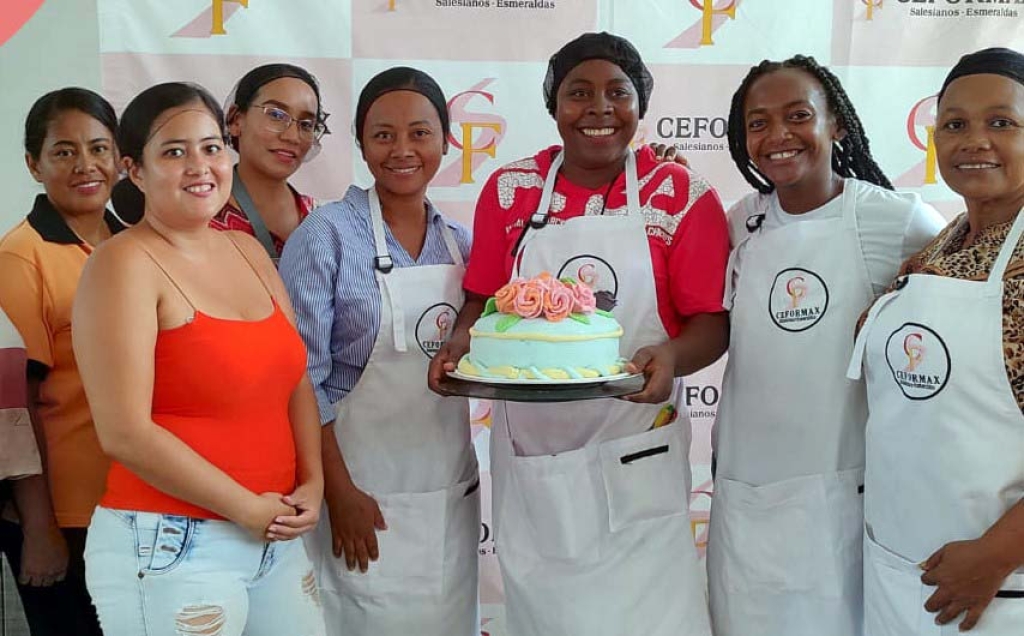
Targeted programs provide opportunities for education and training. NEW ROCHELLE, NY (March 8, 2025) Salesian Missions, the U.S. development arm of the Salesians of Don Bosco, joins humanitarian organizations and countries aroun
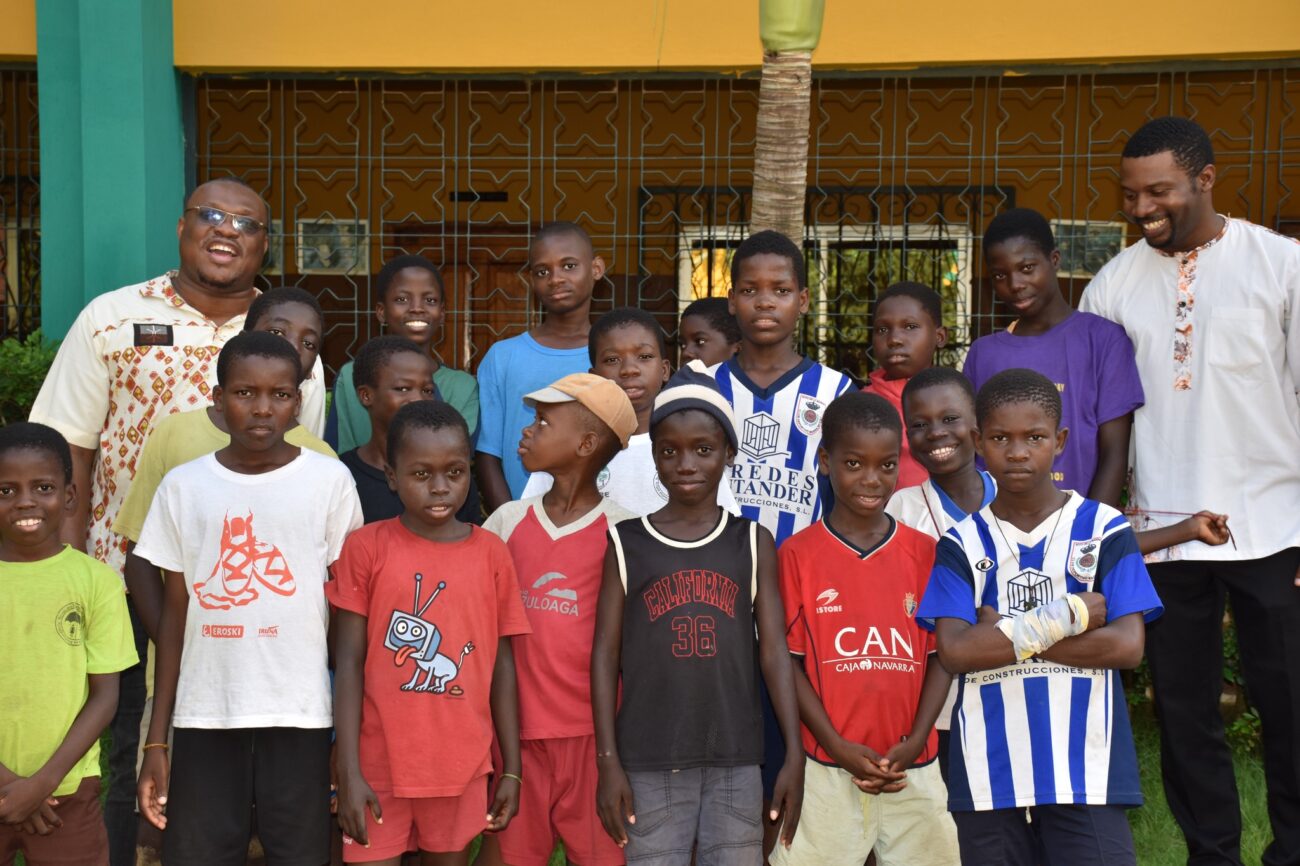
Sub-Saharan Africa has highest rates of exclusion from education. NEW ROCHELLE, NY (March 3, 2025) Salesian missionaries in the Our Lady of Peace provincial community were able to provide 209 scholarships to youth who are disadvan

Salesians work with former child soldiers to overcome trauma, reintegrate into society. NEW ROCHELLE, NY (Feb. 12, 2025) Salesian Missions, the U.S. development arm of the Salesians of Don Bosco, joins humanitarian organizations a
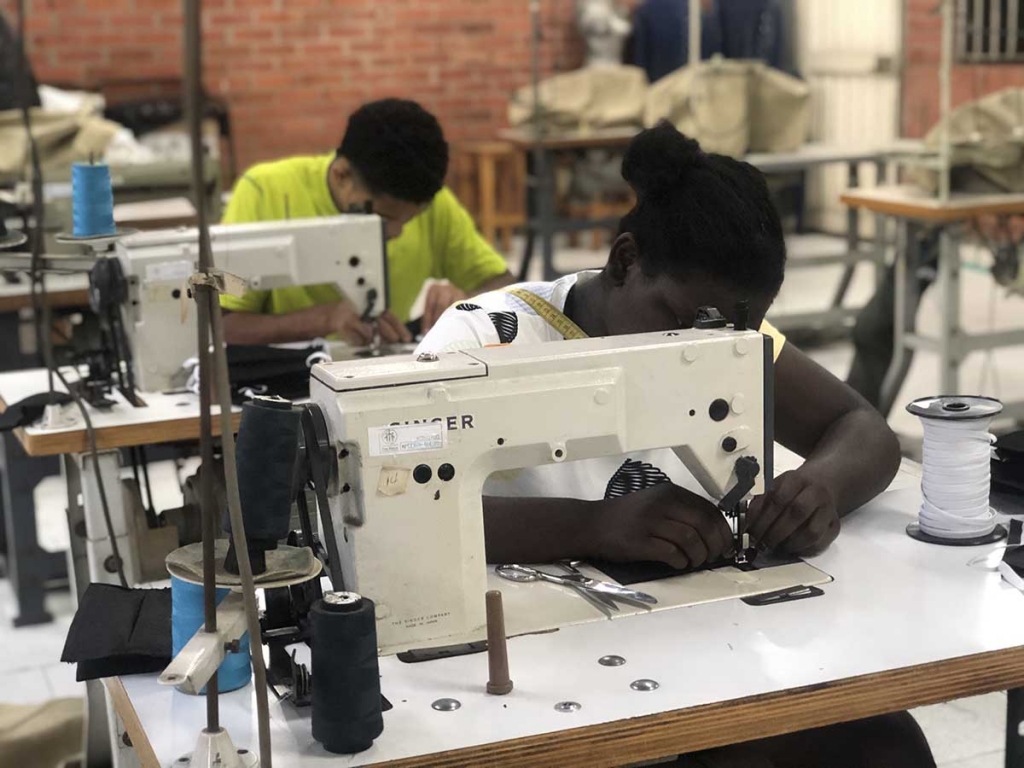
Salesians offer shelter, counseling and education to youth. NEW ROCHELLE, NY (Feb. 12, 2024) Salesian Missions, the U.S. development arm of the Salesians of Don Bosco, joins humanitarian organizations and the international communi

UN report shows devastating impact various forms of conflict have on children. NEW ROCHELLE, NY (Feb. 12, 2023) Salesian Missions, the U.S. development arm of the Salesians of Don Bosco, joins humanitarian organizations and the in
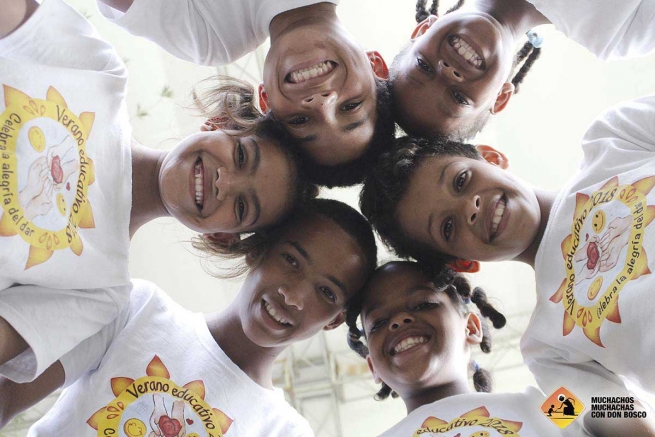
Salesian missionaries in more than 130 countries work to ensure that youth receive support in the aftermath of trauma and abuse. NEW ROCHELLE, NY (June 4, 2022) Top of Form Salesian Missions, the U.S. development arm of the Salesi
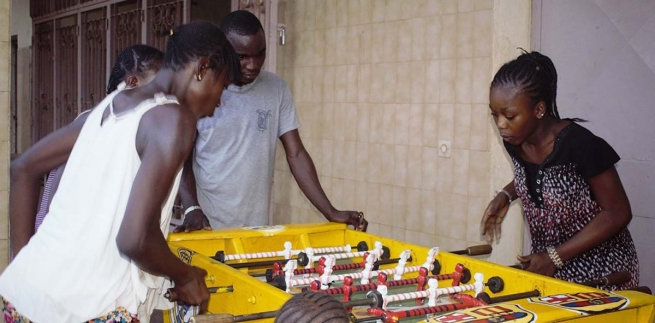
At least 46 United Nations member states still recruit children under the age of 18 into their armed forces. NEW ROCHELLE, NY (Feb. 12, 2021) Salesian Missions, the U.S. development arm of the Salesians of Don Bosco, joins humanit
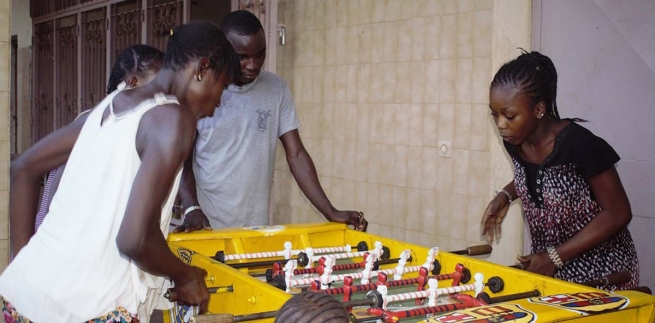
Programs help poor youth receive an education, understand their rights and find a path out of poverty. NEW ROCHELLE, NY (Dec. 10, 2021) Salesian Missions, the U.S. development arm of the Salesians of Don Bosco, joins humanitarian
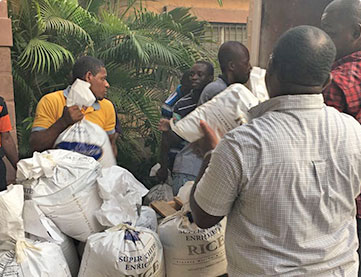
Salesian Missions includes agriculture in its vocational training programs – to ensure that youth of Rwanda learn better agricultural practices as well as keep the school self-sustaining in the face of the country’s food shortages.
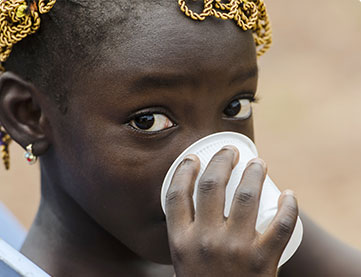
Salesian Missions includes agriculture in its vocational training programs – to ensure that youth of Rwanda learn better agricultural practices as well as keep the school self-sustaining in the face of the country’s food shortages.
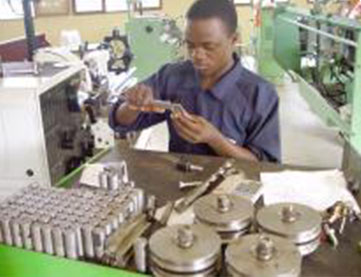
Salesian Missions includes agriculture in its vocational training programs – to ensure that youth of Rwanda learn better agricultural practices as well as keep the school self-sustaining in the face of the country’s food shortages.